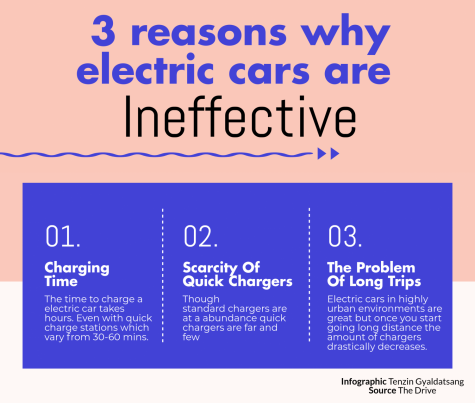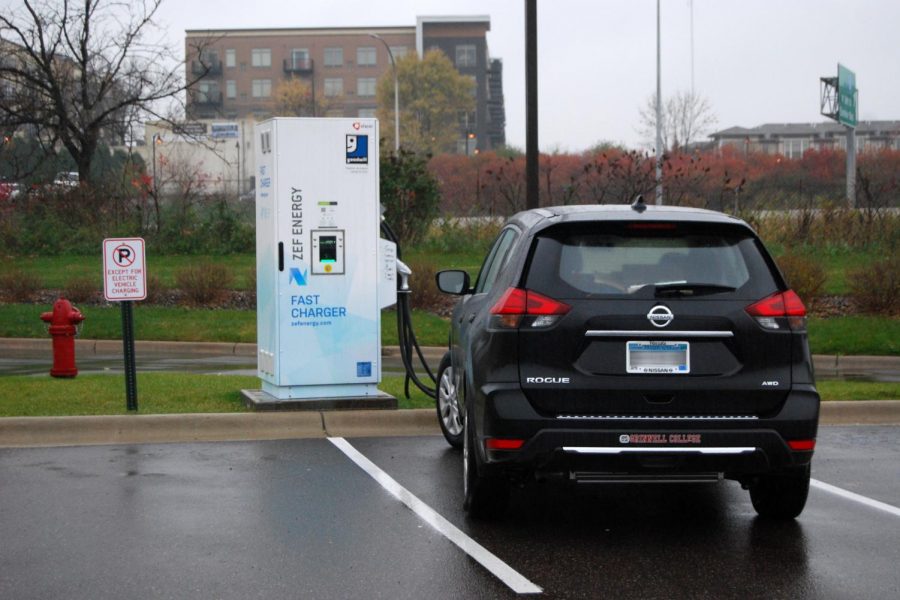Minneapolis should not switch to electric government cars
The city would waste time and money on the upkeep of electric cars
A car parks near the electric car charger at the Goodwill on Hwy 100. The City of Minneapolis is considering changing their official vehicles from gas to electricity powered.

According to the Star Tribune, the city of Minneapolis may be making the change to electric cars in their government fleet. The city believes that having a fleet of electric cars would save money on fuel and maintenance.
The city of Minneapolis changing their fleet to electric cars proves as an awful idea According to Forbes, electric cars cost twice the amount of a standard gas car and the level of effectiveness drops. The range the car can go drops by at least, 25 percent according to Forbes.
According to Plugshare, fast charge stations cut the time to charge an electric car for about 30 minutes, but only two remain in the city of Minneapolis. While there is a bounty of standard charging stations, those charges take around two hours.
The effectiveness of electric cars is lousy compared to their gas counterparts. While gas is readily available everywhere, electric cars can only be charged at home or at specifically set up charging stations. According to TheDrive, electric cars can only be charged in highly urban areas with slow chargers and even with fast charging, the masses would become bored and tired of long waits.
According to Wired, in the future when electric vehicles are more effective and cost-efficient, the people may choose to have electric vehicles. However, at the current time, electric vehicles are not efficient and cost too much for the people to think about currently. This is why the city should try to help schools and infrastructure rather than purchase an entire fleet for city employees.
Instead of spending money on electric cars, the city should try to focus on schools and infrastructure. Citizens would be happier if the city spent more time on those topics than trying to have a fleet of electric government cars.
Though the idea of electric cars is a good concept, the time is not right. With large highly populated cities pushing these ideas like New York and Los Angeles, Minnesota does not seem like the ideal place in the Midwest to have this because of the size of the city. Highly urban cities may be able to have an effective electric car fleet, but Minneapolis is not one of them.

བཀྲ་ཤིས བདེ་ལེགས my name is Tenzin but you can call me Tennam. I'm a senior this year and Echo has been pretty fun! I am...













